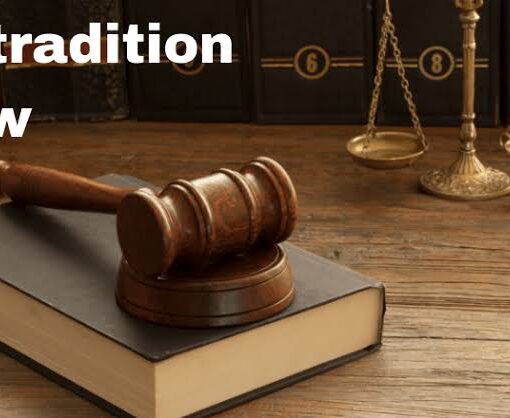Negotiating a car accident settlement can be a daunting and complex process, requiring a combination of legal knowledge, negotiation skills, and a clear understanding of one’s rights and responsibilities. In this exposition, we will delve into the various aspects involved in negotiating a car accident settlement, including the steps to take immediately after an accident, the factors that influence settlement negotiations, and strategies for achieving a fair and favorable outcome.
Immediate Steps After a Car Accident
The moments following a car accident can be chaotic and stressful, but it’s crucial to remain calm and focused to ensure the best possible outcome. Here are some immediate steps to take after a car accident:
1. Check for Injuries:
The first priority should always be to check for injuries and seek medical attention if necessary. Even if you feel fine, it’s essential to get checked out by a healthcare professional as some injuries may not be immediately apparent.
2. Call Emergency Services:
If anyone is injured or if there is significant damage to vehicles or property, call emergency services immediately. This includes contacting the police to report the accident and requesting medical assistance if needed.
3. Exchange Information:
Exchange contact and insurance information with the other driver(s) involved in the accident. Be sure to obtain their name, phone number, address, driver’s license number, license plate number, and insurance policy details.
4. Document the Scene:
Take photos of the accident scene, including the vehicles involved, any damage sustained, road conditions, and any relevant road signs or signals. This documentation can be valuable later during the settlement negotiation process.
5. Get Witness Information:
If there are any witnesses to the accident, obtain their contact information as well. Witness testimony can help corroborate your version of events during settlement negotiations or legal proceedings.
6. Notify Your Insurance Company:
Contact your insurance company as soon as possible to report the accident. Provide them with all the relevant details and documentation, but be cautious about making any statements that could be used against you later.
7. Seek Legal Advice:
Depending on the severity of the accident and the extent of your injuries or damages, it may be advisable to seek legal advice from a qualified attorney specializing in personal injury law. They can help guide you through the settlement negotiation process and protect your rights.
Factors Influencing Settlement Negotiations
Several factors can influence the outcome of car accident settlement negotiations, including:
1. Fault Determination:
The issue of fault is critical in car accident cases and can significantly impact settlement negotiations. In some cases, fault may be clear-cut, while in others, it may be disputed, requiring evidence to support your claim.
2. Extent of Injuries:
The severity and extent of injuries sustained in the accident will play a significant role in determining the amount of compensation sought in the settlement. This includes both physical injuries and psychological trauma resulting from the accident.
3. Medical Expenses:
The cost of medical treatment, including hospital bills, doctor’s fees, prescription medications, rehabilitation therapy, and any other related expenses, will be factored into the settlement negotiations.
4. Lost Income:
If the accident resulted in you being unable to work or losing income due to medical appointments or recovery time, you may be entitled to compensation for lost wages as part of the settlement.
5. Property Damage:
The extent of damage to your vehicle or other property as a result of the accident will also be considered in the settlement negotiations. This may include repair costs or the fair market value of the vehicle if it is deemed a total loss.
6. Insurance Coverage:
The insurance coverage limits of both parties involved in the accident will impact the potential settlement amount. If the at-fault party’s insurance coverage is insufficient to cover your damages, you may need to explore other avenues for compensation.
7. Pre-existing Conditions:
If you had pre-existing injuries or medical conditions that were exacerbated or worsened by the accident, this may affect the settlement negotiations. It’s essential to provide documentation and evidence to support your claim for compensation related to these pre-existing conditions.
8. Statute of Limitations:
There is a limited timeframe within which you can file a personal injury claim or lawsuit following a car accident, known as the statute of limitations. Failing to initiate legal proceedings within this timeframe could result in the forfeiture of your right to seek compensation.
Strategies for Negotiating a Car Accident Settlement
Negotiating a car accident settlement requires careful planning, preparation, and strategic thinking. Here are some strategies to help you navigate the negotiation process effectively:
1. Gather Evidence:
Collect as much evidence as possible to support your claim, including photos, witness statements, medical records, and any other relevant documentation. The stronger your evidence, the more leverage you will have during negotiations.
2. Know Your Rights:
Familiarize yourself with your rights under the law and understand what you are entitled to in terms of compensation for your injuries and damages. This will help you negotiate from a position of strength and advocate for a fair settlement.
3. Calculate Your Damages:
Determine the full extent of your damages, including medical expenses, lost income, property damage, pain and suffering, and any other losses incurred as a result of the accident. Having a clear understanding of your damages will help you negotiate for an appropriate settlement amount.
4. Be Realistic:
While it’s important to advocate for fair compensation, it’s also essential to be realistic about your expectations. Understand that settlement negotiations involve compromise, and be willing to negotiate in good faith to reach a mutually acceptable resolution.
5. Consider Hiring an Attorney:
If you’re unsure about how to navigate the settlement negotiation process or if you’re facing resistance from the other party or their insurance company, consider hiring an experienced attorney to represent your interests. A skilled attorney can negotiate on your behalf and help you achieve the best possible outcome.
6. Maintain Documentation:
Keep detailed records of all communication and correspondence related to the accident and settlement negotiations, including emails, letters, and phone calls. This documentation can serve as evidence in case of any disputes or discrepancies during the negotiation process.
7. Stay Patient and Persistent:
Settlement negotiations can be time-consuming and sometimes frustrating, but it’s essential to remain patient and persistent. Don’t be afraid to push back against unreasonable offers or tactics and continue advocating for your rights until a fair settlement is reached.
Negotiating a car accident settlement is a complex process that requires careful planning, preparation, and strategic thinking. By following the steps outlined in this exposition and employing effective negotiation strategies, you can increase your chances of achieving a fair and favorable outcome. Remember to stay informed about your rights, gather evidence to support your claim, and be willing to compromise and negotiate in good faith. With diligence and perseverance, you can navigate the settlement negotiation process successfully and secure the compensation you deserve.
Last updated on: May 2, 2024




